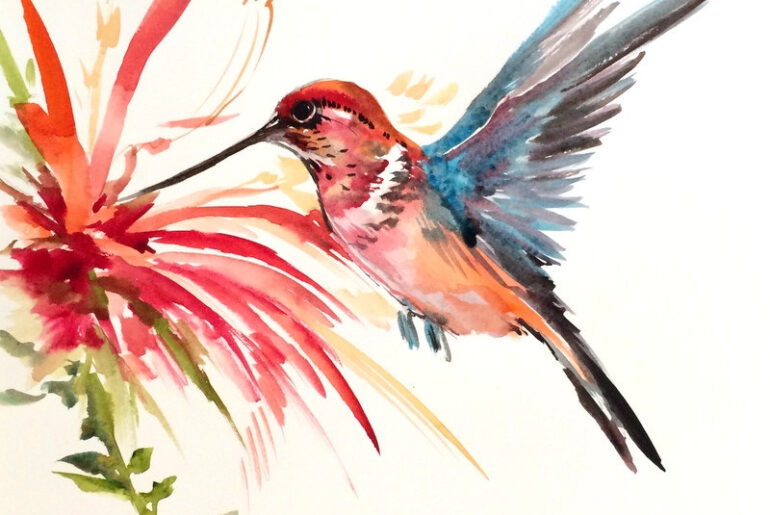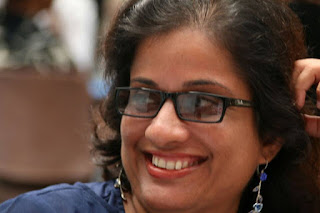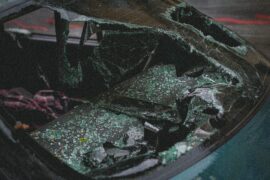CHAPTER ONE
Photo Courtesy: https://img0.etsystatic.com\
PROLOGUE
I have met several disabled people in my life; people with a physical flaw, with a scar, with something on them that they are forever going to see when they look at the mirror. When our hearts are crumbling into pieces and our insides are no longer a beautiful sight, we still can wear a huge smile and stand in front of the mirror, turn left and right, admire ourselves and totally ignore our hearts that are screaming, ‘HELP!’ This is quite different for someone with a disability. They see what they lack, EVERYDAY. It is not as simple as having bushy eyebrows or cellulite or panda eyes. It is not something you can simply use concealers on or make-up to cover it up. It is something permanent. Something they have to accept and live with. They sometimes dread looking at the mirror or even looking at people, because it just reminds them what they are missing or how life would be different if they had normal hands, or eye-sight, or legs, or normal skin etc. But from the physically disabled that I have met, there are those that have picked themselves up, those who have an aura of confidence, they send off very strong vibes of self-esteem and pride, they shake hands with a firm grip and whenever you are about to pity them, they remind you of how whole they are despite what you see. Nafisa is one of them.
UNBROKEN WINGS
A January baby is usually a gift for the New Year. It’s a symbol of hope; the undying hope for an ageing couple. And when the baby is a girl, the only girl in a family of three children, it’s a special gift. The over-joyed couple named her Nafisa, a Muslim name which means Precious. Delicate. Gem. She is indeed Nafisa; she is the girl who was born with spina bifida. The baby that struggled to survive, and when you are born with spina bifida, you just have two choices. You either become a victim of your own pity as you wither away or you fight through all the odds to bloom. Nafisa chose the latter.
In the heart-warming city of Mombasa-Kenya, on the 22nd of January 1976, at 5 a.m. at Aga Khan Hospital, a tiny baby girl came into this world. Mrs. Fatema held her baby; Nafisa lovingly as the nurses helped her clean up. But they kept pacing in and out of the room restlessly and worry immediately started sinking in Mrs. Fatema’s head, ‘what is wrong?’
Right then, Dr. Varma came into the delivery room with a rather enigmatic face.
“You wanted a baby girl right? God gave you one,” he said as his lips remained tightly sealed.
“Sorry,” he continued as he held Nafisa to check her. Mrs. Fatema looked at him with puzzlement as the fear in her grew. Before she could ask anything, Dr. Varma interrupted her thoughts, “When is your husband coming?”
“Any time from now. Once he is informed that I have delivered then he will come immediately.”
Dr. Varma nodded before leaving the room, leaving Mrs. Fatema drowning in her thoughts.
Just when Nafisa’s father, Mr. Kutubudin, arrived in the hospital he was summoned in the doctor’s office and was informed that Nafisa’s spine was cracked above her hip area and the nose of her spine was outside. Her condition is called spina bifida. She needed a surgery immediately. The consequence of the operation was that either her lower or upper parts of the body would end up numb; with no feels or movement. But to survive, it was crucial that she undergoes the knife. However, there was one other problem; the doctors were unavailable. There had been a railway accident and the critical situation of the patients required the doctors there. This left them with only one other option; that they out-source a surgeon to operate on Nafisa. Out of desperation, Nafisa’s father agreed and signed the required papers.
Nafisa was operated on successfully leaving the lower part of her body affected. She was alive, that was what mattered most to her parents and for the years to come, they ensured that Nafisa wouldn’t be any less than a normal child. For the first six months of my life, the doctors tried to support my spine with a cast. Her mother was not allowed to breastfeed her until she was six months old. Other people were hardly allowed to touch her because of her delicate condition.
In Kilifi area near the large and famous Coast General hospital, Nafisa Kutubudin Khanbhai was brought up. Her parents worried what school to take their gem to. Special schools were not any special anyway and in the early 80’s there were not many choices in terms of schools with special needs. They wanted her to lead a normal life like any normal child. Coming to their rescue, Mrs Rosy Ganiwalla who was a teacher then was able to enroll Nafisa into Alibhai Panju School. This was when her journey started; not just as a child or as a student but also as a survivor. Life was not going to be any easy for her in normal school. There was stigma. There was speculation. There were a lot of rumours. None of the other children would easily understand why until the age of 9, Nafisa was still wearing nappies. They couldn’t fathom why such ‘a big girl’ would still get dirty by passing out stool or why she always had to carry an extra pair of clothes everywhere she went to. Slowly, other children stayed away and for those who understood her condition, pitied her, something she didn’t really like.
But how many people actually understand what spina bifida is all about? It was either just the doctors or its victims and at most, the people who had relatives or friends affected with it who knew what it were about. Her hip had a crack and thus had to be operated on. This is what had caused all the health complications in Nafisa. She could not walk unless with her crutches. She could not control the urine and stool unless with medication. She became a victim of strange stares, whispers around her and eventually, stigma.
Something else unexpected happened, Nafisa became a woman at the age of 6. “My white uniform turned red while at school. I thought I had hurt myself. My mother was called in and took me home. I stayed out of school for three days. Later my parents were told that although I would menstruate regularly, there were low chances of ever being able to conceive.”
Adolescence at such an age can be very alarming. Still in diapers, Nafisa was already experiencing the monthly periods. She was already exposed to the world of cramps, breast pain, pills and darkness with barely any light at the end of the tunnel.
“My school deskmate used to make fun of me; talk about how I smelt of urine and waste and how disgusting it was. She wasn’t the only one though but I don’t blame them. We were just kids; barely understanding what is really happening to me. It used to make me sad but I never used to cry about it. This is because I happened to have amazing friends too; friends who supported me since. I had my neighbour Fatema; we used to go to school together and spend time together after classes too. She was the same girl who used to buy me snacks during break period,” Nafisa narrates.
As expected, Nafisa never had much interaction with her class mates. Not everyone was ready to look beyond her disability and her helplessness but still, not everyone totally ignored her. Some few friends really tried to cope up with her situation and helped her whenever she could. During the prayer time, the students would all go to the mosque to pray and getting stares from everyone as she removed her shoes was not a surprise. Yet she learnt to ignore all that and be the strong girl she is. As they say, ‘when they stare, make it worth their while.’
Mrs Fatema would go to her school every day during break time to change Nafisa’s nappy, something even the house girls used to refuse to help with. And whilst her friends played around merrily, she could not take part in any out-door activities.
“Since Nafisa’s birth, my life changed forever. I dropped everything and I had no interest whatsoever in the life out there. My life now revolved around Nafisa. I was always thinking, thinking and thinking. What will I do? What should I do for her? It has always been about her. I wanted her to have a comfortable life. We both wanted that; her father and I.”
Locked away from the normal life her peers enjoyed, Nafisa would soon find herself falling in love with books and movies. Nancy Drew books were her favourite. She would imagine herself lost in a different world, tailing Nancy as they uncovered piece by piece of new clues and evidence for a new mind-blowing case and draw in sharp breath as they discovered, together, something unexpected or find themselves in trouble. She would borrow the books from her friends but those she brought herself, she treasured even more.
So it passed that her free time was spent lost in the imaginary worlds offered by the crisp pages of her books or glued to the screen of their TV watching Tom’s and Jerry’s shenanigans play out. These were her happier moments, she recalls. A bubble all for herself. A tiny one but enough for herself.
Nafisa’s impairment meant that she had to frequently visit her physiotherapist doctor Kishore Adatiya who dedicated her efforts to seeing Nafisa overcome her paralysis and walk on her own. But grit and effort alone wouldn’t be enough. Every six months she had to travel to Nairobi to make her calipers (devices that enable people with motor disabilities to walk and thereby remain mobile) which were being made in Kabete hospital.
At the age of 9, Nafisa started getting persistent stomach aches. The younger of her two brothers took her to hospital where she was told that both her kidneys were infected. She was operated on by a visiting doctor from India. At that time, she was the first and youngest child to undergo that procedure which left her wearing a urine bag (in medical terms known as Urostomy i.e. when a bladder is bypassed or removed, an opening in the belly (abdominal wall) is made during surgery to redirect the urine. The patient is thus unable to control urine coming out so a pouch, which is the urine bag, is needed to collect the urine as it comes out).
“It costs me 7 pounds and 50 cents for every urine bag for Nafisa and the bags were being manufactured in Denmark. The financial costing was becoming heavy on me and her father, and that is when my sister Tara, who lives in the United Kingdom, stepped in to support us in buying the bags. She also raised Nafisa until the age of 6. I didn’t get much support from family but I can’t totally disregard the little much they offered,” Nafisa’s mother says.
Despite all odds stacked against her, she persisted in her pursuit of education. She wasn’t exactly the genius of her class but neither did she settle on being the tail. For her, everything was a struggle but she kept up with the top students as much as she could and never strayed from the top twenty. Her teachers, who mistook her struggles for apathy, complained when she lagged behind in her studies. It was the price she had to pay for wanting to be treated normally, like the rest of her classmates, for trying to prove that her physical handicap bore no effect whatsoever on her ability to learn and think like anybody else. One sentiment she does share was her dislike for maths. “Maths was my childhood enemy, maybe my foe for lifetime.” She would tell you if you prompt her. She would always skip maths classes to the extent that her maths exercise books were literally empty. Her class one teacher was another particularly negative highlight from her early school life. She was too harsh, too rigid; the type to give their seven year old students nightmares. It was from this point, perhaps, that she first learned to hate.
After school every day Nafisa used to go for tuition where she made another friend Naheed. “I remember how we would always carry Jujube (commonly known as ‘kunazi’) to the teacher’s home where she conducted the tuitions. When she got distracted with a phone call or when she disappeared in her kitchen, we would quickly throw the Jujubes into our mouths and act innocent when she is back. Despite everything, I did enjoy my childhood,” She laughs lightly.
It was these kinds of moments that gave her the strength to go on with school life but that was only until class eight when she dropped out. Her medical condition was too heavy on her shoulders and decided to call it quits for school life. Yet still no one could ever forget that she had once won the most disciplined girl award or that she had done her very best to not let her disability or stigma fail her entirely. Of course it did mean she had to give up her dream of being a lawyer but she never gave up hope in life. She decided to accept this situation fast and not dwell on the things that couldn’t be changed. She therefore soldiered on…
———————————————————————————————————————
“Since her childhood, Nafisa, never accepted to be left out in anything just because of her condition. She would always help me out in the kitchen, peeling the potatoes and cutting the tomatoes. She was still that strong girl seating on a table to make her bed, arranging clothes in all the house ward robes and dusting the place. She enjoyed setting up cutlery for events; deciding what plates to be used when the visitors arrived and what cups would best fit. She would anxiously and skillfully choose the appropriate dress for the event with matching jewelries. And whenever there was henna at home, she would always tattoo herself with it. Despite everything, Nafisa loved and lived. She just never allowed her disability become an inability,” Mrs. Fatema, Nafisa’s mother says.
They say, ‘beautiful souls have it the roughest’ and indeed Nafisa had her fair share of ‘rough’. Getting friends was difficult but getting real ones was even more difficult. Her social life was greatly made up of people using her for their own gains, misusing her kindness and forgetting her when she needed them the most. “But I have had life-time friends too. Mariya FidaHussein, Tasneem (my kitty group friend) and Hasanain have been more than just friends, but sisters from another mother. There was Aziz Mustanir too, a brother who came later into my life. These are the people who have been there for me for the longest time; even before I grew into the firm and strong lady I am today,” Nafisa says.
However much darkness overflowed in her life Nafisa still found reason to find happiness and joy in the blessings in her life. She created her best childhood moments from the trips she went with her family and their family friends to Tsavo, Amboseli Park and several other beautiful places that exposed her to that light at the end of the tunnel. Adnaan Bhaiji was the son of Talib Baiji; Nafisa’s father’s best friend. “Adnaan was so charming and naughty and he always knew how to make me happy. He always came along to the trips in the wild. And when we settled in our hotel rooms, he would come to me and excitedly tie his dirty socks or any clothe around my eyes before disappearing for her to find him. He would hide in unexpected places like on a wall and still expect me to find him. He would untie my neat braids and mess with my hair and there were those endless surprise birthday parties that we would do for each other…We shared such a special sibling bond that would live on for a long time afterwards,” Nafisa narrates nostalgically.
Her other childhood friend, Anar Gulam, made it a trend to visit Nafisa every weekend or on some weekends Nafisa would return the favour, and sometimes, she too joined them during their trips to Tsavo or Amboseli or wherever their next vacation adventure took them.
Life was not all that bad after all. Her parents raised her with a very positive attitude, with tremendous support and showered her with love such that she would never feel alone in her journey. Yet there were a lot of surprises yet to come…
Today we celebrate world spina bifida and hydhydrocephalus day. We celebrate the patients and warriors battling with the two. You are indeed an inspiration to many of us! TO BE CONTINUED. PLEASE STAY TUNED…





